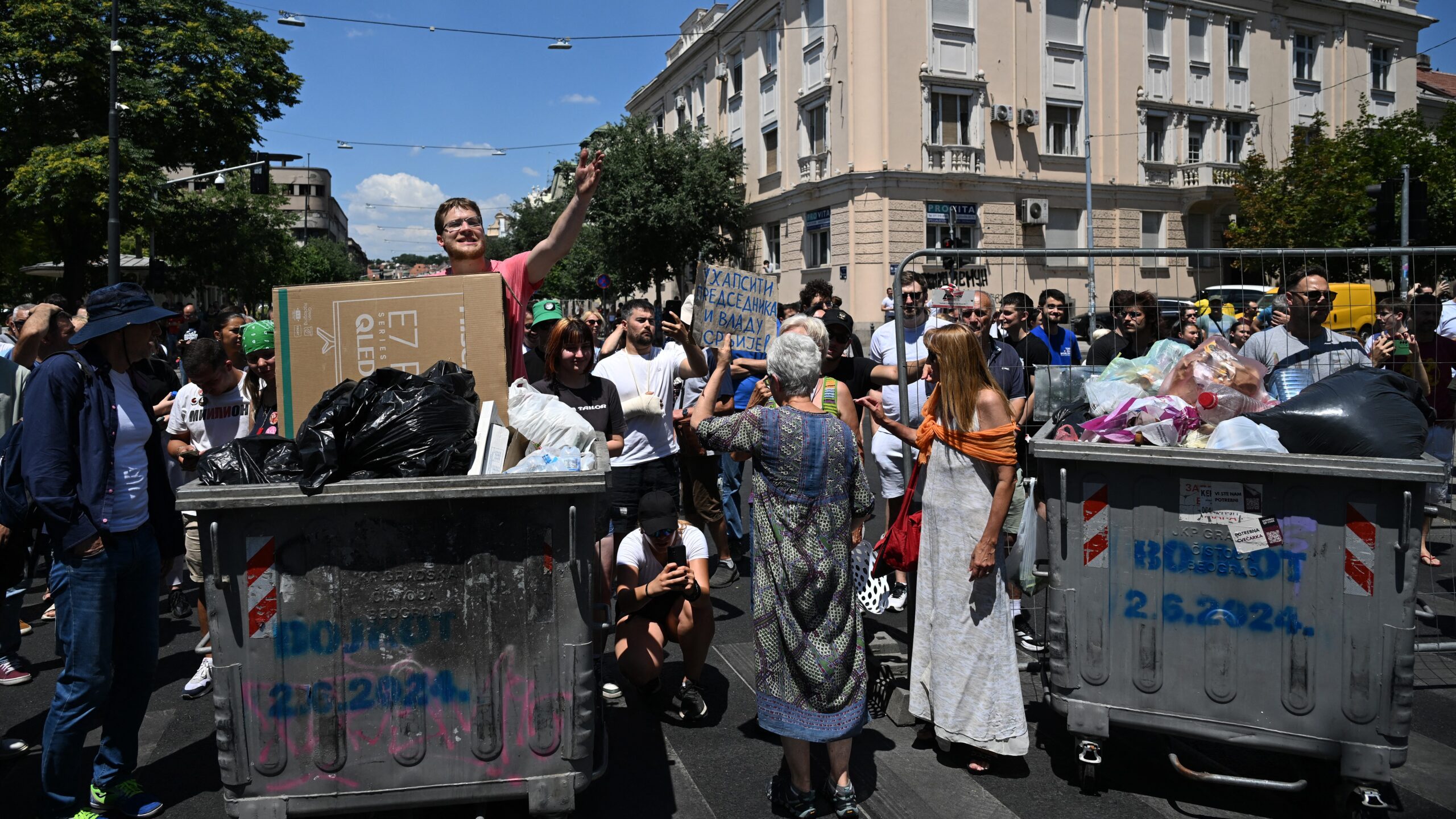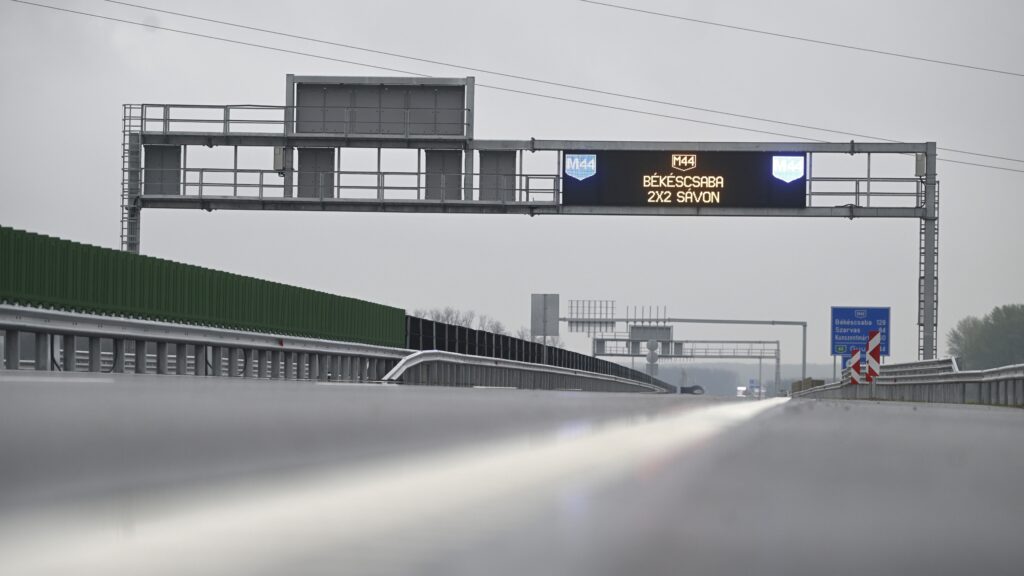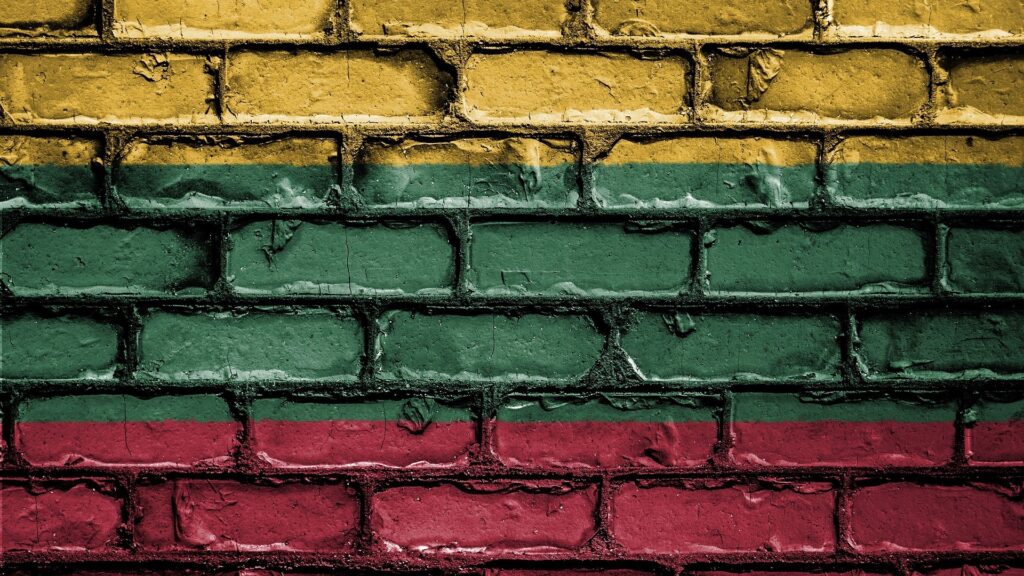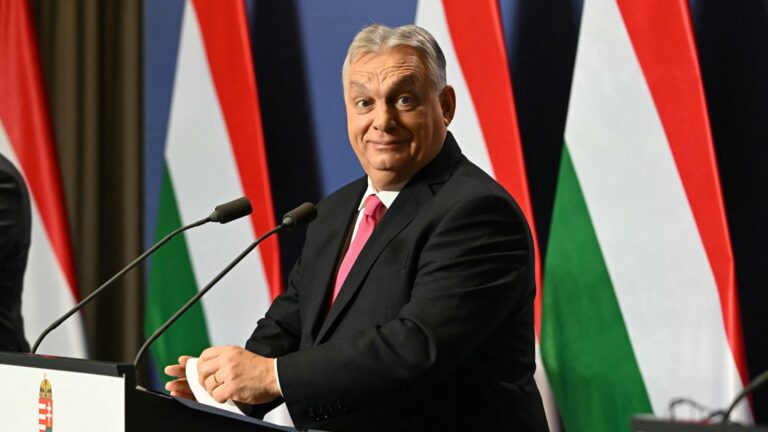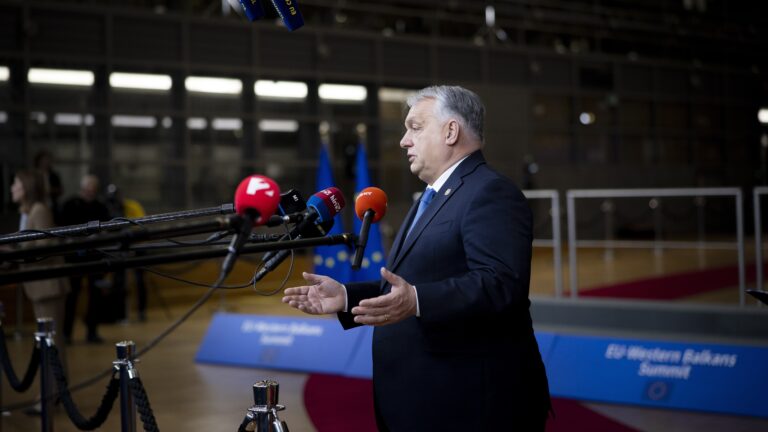During the weekend, masses of people took to the streets of Belgrade demanding snap elections. Protests have been ongoing in Serbia—Hungary’s southern neighbour—since November last year. Protesters, disillusioned with President Aleksandar Vučić’s government, accused Belgrade of growing increasingly authoritarian and corrupt. While this weekend’s march still drew a considerable crowd, with approximately 150,000 people attending, it was smaller in scale than the rally in March, which attracted nearly 300,000 participants. This was despite the protest falling on a symbolic date: 28 June, when the Serbian Orthodox Church commemorates the anniversary of the 1389 Battle of Kosovo—a decisive event in Serbian history that marked a turning point in the nation’s political trajectory.
Authorities claimed that 48 officers were injured as the demonstration turned violent. 77 people were detained by the police while 22 protesters also needed medical help. This weekend’ demonstration was not the first since November that resulted in violence—back in March a session of the Serbian parliament was also disrupted by protestors; in the resulting clashes three people were injured. In response to the protests, President Aleksandar Vučić repeated his claim that the demonstrators are ‘trying to bring down the state.’
Aleksandar Vučić (Serbian Progressive Party, SNS) served as Prime Minister of Serbia from 2014 to 2017 and has been President since 2017. Vučić’s Progressive Party-led coalition currently holds 156 of the 250 seats in the Serbian Parliament. The student-led movement repeated its call this weekend for snap elections—a demand the government has dismissed. ‘Should the stated demands not be met… we expect that the citizens of Serbia will be ready to take all available measures of civil disobedience to protect their basic right to a free and legitimate democratic system,’ the students wrote in an open letter to the government shortly after the rally, which was marked by violence, concluded.
‘Vučić is unlikely to suffer an electoral defeat even if snap elections are held’
As no single individual has emerged as the leader of the demonstrations, and the student-led coordinators are not organized into a political party, Vučić is unlikely to suffer an electoral defeat even if snap elections are held. In two highly anticipated local elections in the towns of Zaječar and Kosjerić earlier in June, the SNS claimed—albeit narrow—victories despite the ongoing wave of protests. The Serbian Progressive Party secured 27 seats in Zaječar (while the opposition won 23) and 14 seats in Kosjerić (with the opposition securing 13).
The first protests in November were triggered by the collapse of a rail station canopy in the city of Novi Sad, which resulted in the death of 16 people. Following the tragedy, the government was accused of negligence and corruption, while both the prime minister and the country’s transport and infrastructure minister were forced to resign.
Once the protests began, Serbian universities quickly emerged as hubs for demonstrators, with educational activities forced to shut down in many faculties due to picket lines. The blockades of university buildings lasted from mid-December until around April 2025, when the government decided to significantly cut professors’ salaries until they made up for the lectures they had failed to deliver. Despite these measures, some students are still unable to access adequate education—while some professors are now organizing online lectures, others distribute only reading materials. The ongoing protests have created a highly uncertain situation for many students—with the end of the academic year approaching, it remains unclear in many cases whether universities will be able to compensate for the lost lectures. Pressure is mounting on prospective students too—as long as it remains uncertain whether current students will graduate, the government has yet to authorize new enrolments.
‘The EU...postponed the disbursement of 111 million EUR in aid due to Serbia to pressure Belgrade to bow to the protests’
Since November President Vučić repeatedly warned of foreign influence with relations to the protests. Brussels have recurrently voiced its support for the protestors, with the EU's High Representative for Foreign Affairs and Security Policy warning the EU candidate country that ‘Serbia's European future depends on the values it chooses to uphold'. Student organizers cycled from Novi Sad to France and then ran nearly 2000 kilometres from Strasbourg to Brussels to draw the EU’s attention to their cause. In Brussels, the student-protestors were welcomed by MEPs, while the EU also postponed the disbursement of 111 million EUR in aid due to Serbia to pressure Belgrade to bow to the protests.
Reflecting on the EU’s attempt to exert pressure on the Serbian government, Hungarian Prime Minister Viktor Orbán said: ‘Everybody knows what kind of attempts have been made in both Serbia and Hungary. How they are trying to put pressure on the country by blocking funds or through the activities of NGOs.’
When in March Hungarian Minister of Foreign Affairs and Trade Péter Szijjártó met with Serbian Minister of EU Integration Tanja Miščević, Szijjártó also described the ongoing demonstrations as an attempt at a ‘colour revolution’. While highlighting Hungary’s support for Serbia, Szijjártó emphasized the need for transparency in media funding: ‘Some political and media actors have served and continue to serve foreign interests in our countries. We need to investigate which political and media actors rely on foreign funding.’
High Representative Kaja Kallas and President Vučić clashed earlier too: when the Serbian President announced that he will be attending Moscow's 9 May Victory Day parade, EU officials strongly condemned his move. Due to its energy dependence on Russia and its traditional friendship with the fellow Slavic and Orthodox nation, Serbia refused to join EU sanctions against Moscow.
Related articles:

